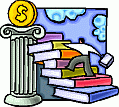One of the most important rare book collections is the one that concerns rare history books. Historic events such as wars between nations, government policies and practices of justice have shaped our world over the ages. Without historic documentation, our most celebrated milestones in the history of mankind would have been long forgotten, misinterpreted or not communicated properly. As the first historian known, Herodotus, once said “I am bound to tell what I am told, but not in every case to believe it.” While Herodotus is considered to be the Father of History, the foundations of modern history were set by Thucydides with his account of The History of the Peloponnesian War, which is regarded as one of the earliest scholarly works of history.
Whether written to document the Athenian empire in the years 479 BC to 432 BC, the Middle Ages, or Modern History wars of independence and revolutions, the content of coverage from a book collector’s perspective is vast. For this reason, the attempt to include all historical documentation is a great and endless feat. Amalgamate writings on battles, to governmental and legal works that span centuries of civilizations, and the field of interest becomes impossible to follow. Thus, collectors instead concentrate on smaller areas of exploration and discovery. It is common, then, to come across collectors of only Civil War books, or French Revolution books or Naval History and so forth.
Our Rare Book Sale Monitor (RBSM) has recorded the performance of “Military, World History and Government,” a close third in price appreciation to our “Religion and Theology” genre. One important observation is that rare books that fall into the category of “Military, World History and Government” are less volatile than the rest of the RBSM groupings. In fact, “Military World History and Government” is closely correlated to the performance of the rare book market as a whole, and as featured in our earlier posting “Slow but steady.” This may in fact be due to the large content area that these books are actually covering.
A copy of one of the rarest history books, Rudimentum Novitiorum, was sold at the 45th California International Antiquarian Book Fair, held this year, for the amount of 1,150,000 USD. The book was printed in 1475, and is considered to be not only the first book written about the history of the world, but also the first book to contain printed maps. The English translation of the book’s title is The Handbook for Beginners. The book was printed in Lubeck by Lukas Brandis, and became better known under the French name La Mer des Hystoires. In 1999, a two volume 16th century copy of the French book was sold for the amount of 10,500 USD even though its price was only estimated between 2500-3500 USD.
There is no doubt that Rudimentum Novitiorum, is a very rare, antiquarian, history book and is also a book of art. In fact, it is quite possible that the collector who purchased the book was more attracted to the hand-colored maps than to the historical content found in the book. For this reason, it is interesting to ask ourselves if the book would still be worth 1,150,000 USD if it was never printed to contain maps. The answer to this question is probably not, but the main point to keep in mind is that maps are an important part of history, and are just as crucial to history as rulers and forms of Government, and writings which portray the pursuit of justice against past historical tyrants.
In future postings covering this genre, we shall zero-in on rare history collections by concentrating on specific time periods, geographic areas, or topics of interest. Our focus will be on researching present book value, and providing the history niche book collector with information and opportunities to then explore the exciting genre further. As the immortal historical figure Thomas Jefferson wrote in 1789, “Whenever the people are well-informed, they can be trusted with their own government.”


{ 0 comments… add one now }